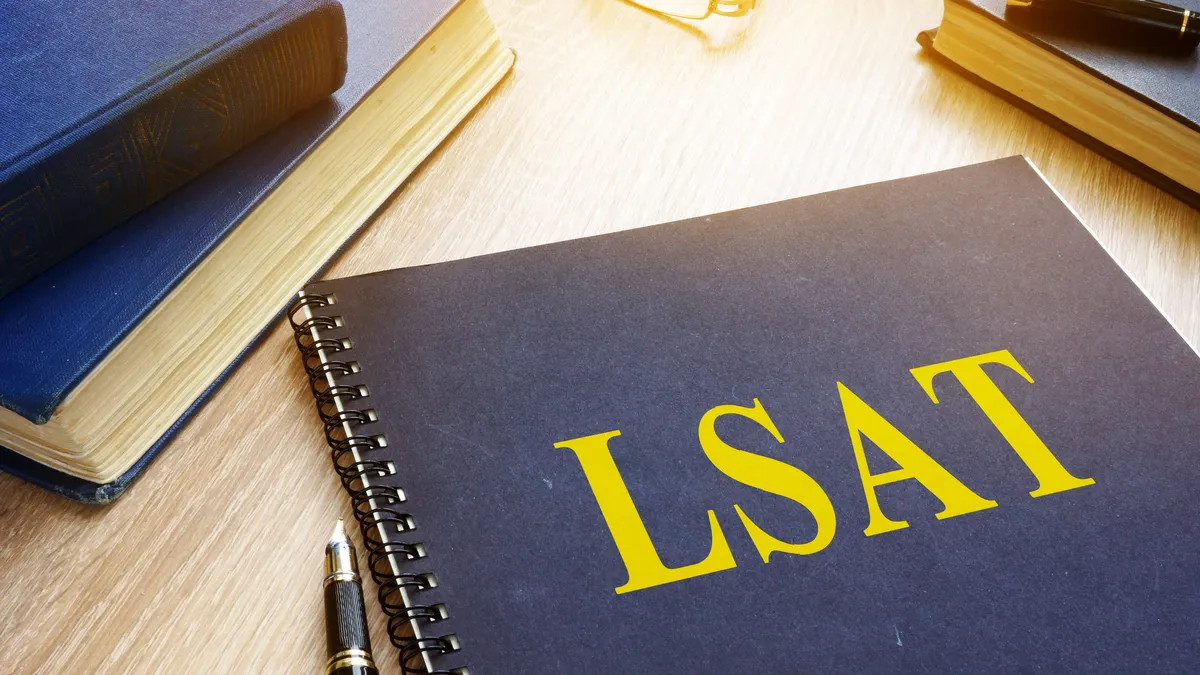Dive Brief:
- An American Bar Association governing body will vote next week whether to ax a requirement that ABA-accredited law schools use an entrance exam, like the Law School Admission Test, or LSAT, eroding the assessment’s long-standing influence in admissions.
- A key ABA committee, the Strategic Review Committee, on Friday recommended the association end admissions test requirements.
- If the governing board votes Nov. 18 to repeal assessment mandates, the ABA House of Delegates will be in line to finalize the new policy at its February meeting.
Dive Insight:
The association’s decision is an important front in the test-optional admissions battle that will heavily influence the financial fortunes of assessment providers.
It is a struggle that's been unfolding for years.
The ABA previously attempted to strike down testing mandates in 2018, but backed off amid concerns historically disadvantaged applicants would lose an objective admissions measure.
However, test-optional proponents say those applicants stand to benefit the most from these policies. Making the admissions process more flexible could help attract a more diverse candidate pool, they say.
Meanwhile, critics’ opposition centers on the idea that admitted classes will be unprepared for academic difficulties.
Both arguments cropped up again in public comments the ABA fielded. The Strategic Review Committee said in a memo that the ABA received nearly 120 comments on the testing policy and another admissions rule about creating an academically prepared class.
The committee rejected concerns by some detractors who said abandoning admissions tests would foster a “race to the bottom,” in which law schools all get rid of entrance exams to keep up with one another, without replacing them with another sound metric.
Law schools “will remain free to adopt an admission test to bolster their admissions policies, and many likely will do so as a means of demonstrating that they are addressing those issues,” the committee wrote.
The Law School Admission Council, or LSAC, which administers the LSAT, has argued making entrance exams optional for law schools “may often work against minoritized individuals.”
About 50 law school representatives signed onto a defense of testing requirements. Two law school admissions deans who sit on LSAC’s trustee board led the group supporting testing mandates.
LSAC earned $33 million from the LSAT, according to its latest available tax filing.
Testing requirements for law schools have eased in recent years.
Over half of the law schools the ABA accredits, 100, now allow applicants to submit results from the Graduate Record Examination, or GRE, for admissions, in lieu of LSATs.
Many law schools outside of the ABA’s purview have long not asked for LSAT scores.










